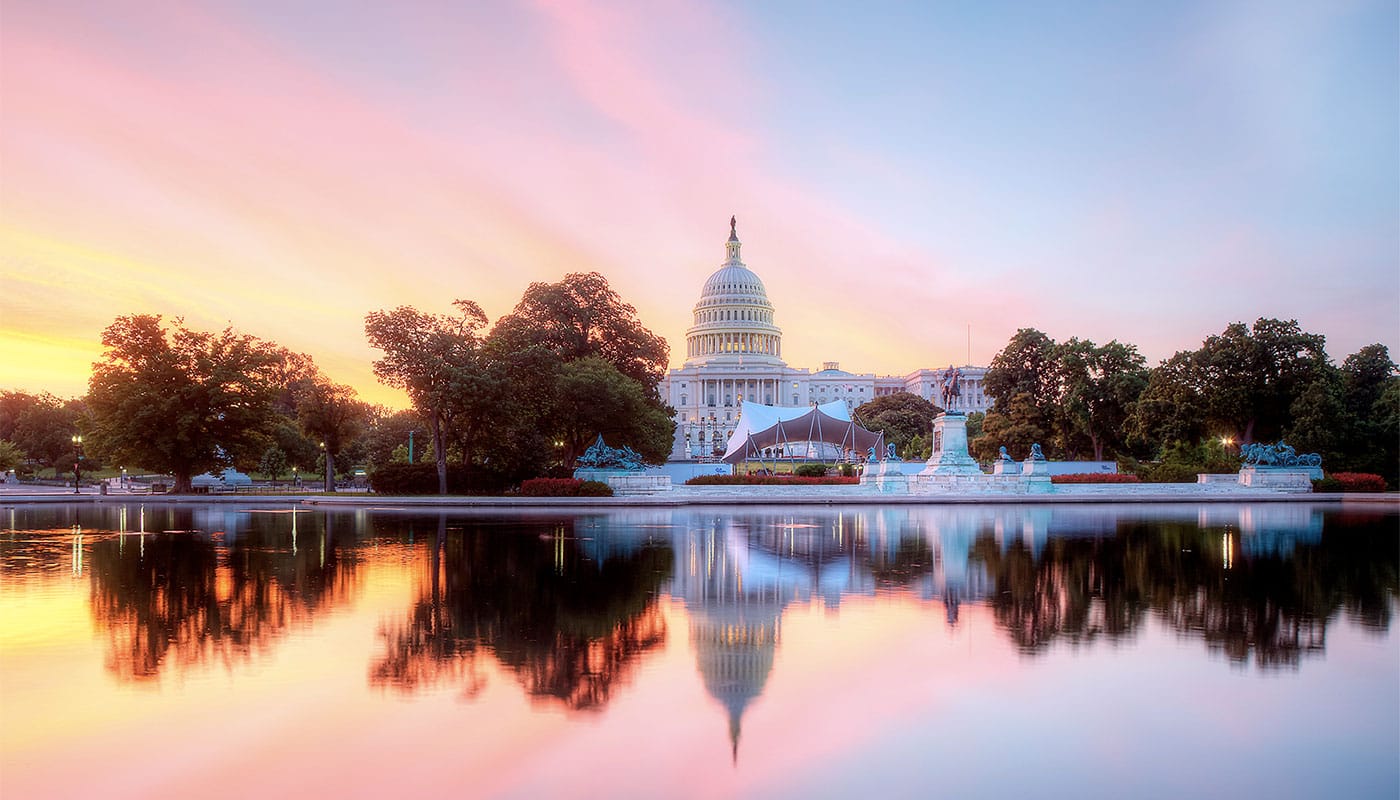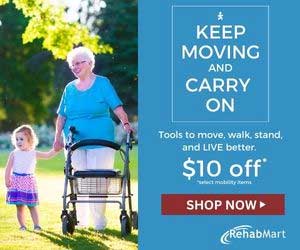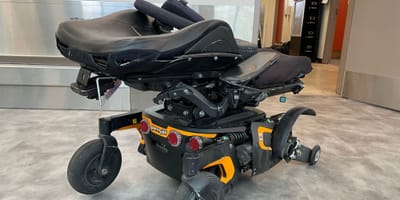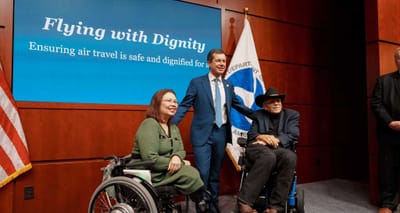Over the past decade, a growing interest in social equality has spread throughout American society. Previously marginalized groups have marched, protested and lobbied their way towards a greater recognition of their constitutional rights. This civic engagement has led to programs, policies and laws benefitting African Americans, the LGBTQ community, religious minorities, the poor, homeless and impoverished, among others. Unfortunately, America’s largest minority group—the disability community—has been left behind.
In state capitals and in Washington, D.C., legislative action comes as a result of lobbying. But, unlike other minority groups with civil rights concerns, the disability community has not organized. We’ve not mounted a serious effort to fight for our interests since the ADA was signed into law by President George H.W. Bush in 1990.
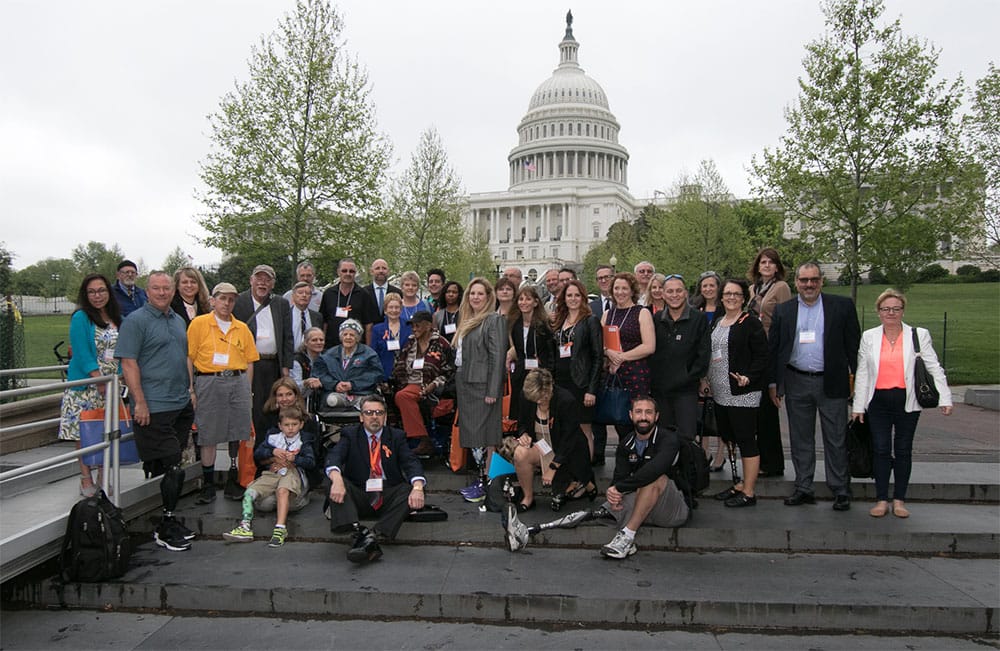
With debates raging in Congress about the future of health care, there has never been a more important time for us to organize and act. That is why I traveled to Washington, D.C. last week, on April 26, to join amputees from more than 25 states on Capitol Hill, in an event organized by the Amputee Coalition.
With the month of April being Limb Loss Awareness Month, we set out with the goal of doing just that—raising awareness of the limb loss community through our personal stories. I (we) met with our representatives to say that we exist, we have value and we want to be seen, heard and recognized.
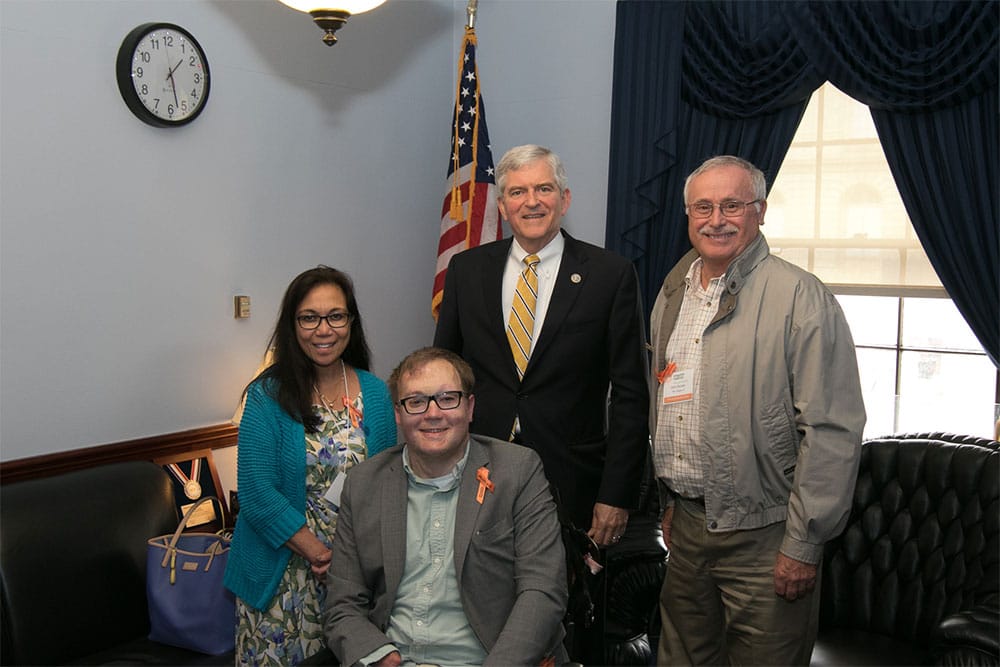
I paired up with a number of other Floridians and met personally with Representatives Webster (FL-10) and Yoho (FL-3), as well as a legislative assistant to Senator Marco Rubio.
Our legislative agenda focused on three main points—appropriate access to care, transparency in insurance coverage determinations and funding for the National Center for Medical Research and Rehabilitation (a division of the NIH). With Congress split along party lines about the future of healthcare, I was happy to push for common sense legislation that should be (and hopefully will be) bipartisan in nature.
A Greater Purpose
I’m active in advocacy on a lot of fronts, but joining the Amputee Coalition for Hill Days was important to me, as a triple amputee. The changes to healthcare being discussed in Congress—particularly as they relate to medical equipment, prosthetics, pre-existing conditions and arbitrary lifetime caps—could have a profound effect on my life and future. I hope this Congress will use the power they have in a positive way, to do right by Americans of all abilities.
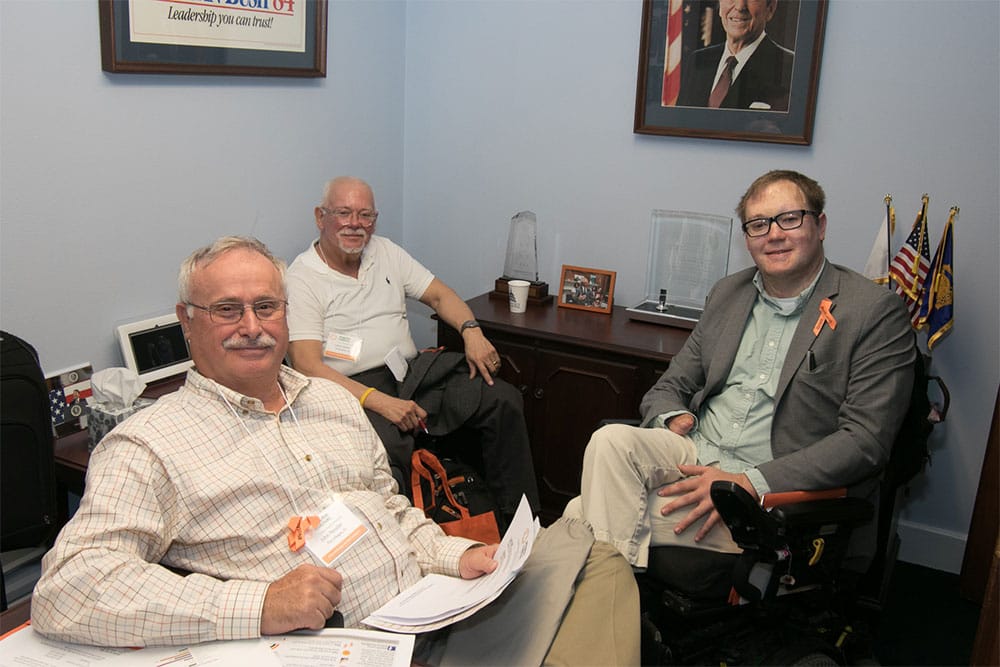
The most memorable aspect of my Hill Days experience wasn’t the meetings with elected officials, but the opportunity to connect with fellow amputees. The sense of camaraderie found in our shared experience was invigorating. I even made new friends, including Larry from Indiana and (another) John from Florida, who inspired me with their life stories.
If you have an opportunity to attend a disability-focused event, conference, march or protest – do it! I’m confident that you won’t regret meeting others who share a piece of your identity.
Going to Capitol Hill with a Wheelchair
While the Amputee Coalition prepared my schedule of meetings for the day, every American has the right to request a meeting with a congressperson or his/her staff. Representatives and senators have offices spread across a series of buildings on Capitol Hill. My schedule of meetings took me to three of these – the Cannon and Rayburn House Office Buildings and the Russell Senate Office Building. Many of these were connected by underground tunnels, which decreased the time (and effort) required to get around. Upon first entry to this network of congressional buildings, I had to pass through security, which is similar to what you’ll find at the airport (but much less invasive).
Advocacy for disability rights in important, and I encourage readers of this blog to take an active role whenever possible. If you have the means are are able, your advocacy for the disability community could make a profound difference for yourself and others. If you’d like to raise concerns with your representatives in Congress, start planning your trip with the Washington, D.C. wheelchair travel guide.
Thank you to the Amputee Coalition
I would like to extend a sincere thanks to the Amputee Coalition and its team, for organizing a fantastic experience on Capitol Hill and giving so many amputees a voice. If you are an amputee, please be sure to visit www.amputee-coalition.org to sign-up for the e-mail newsletter and receive inMotion, the organization’s bi-monthly magazine.
Don’t forget to also sign-up for the WheelchairTravel.org newsletter by clicking here!

